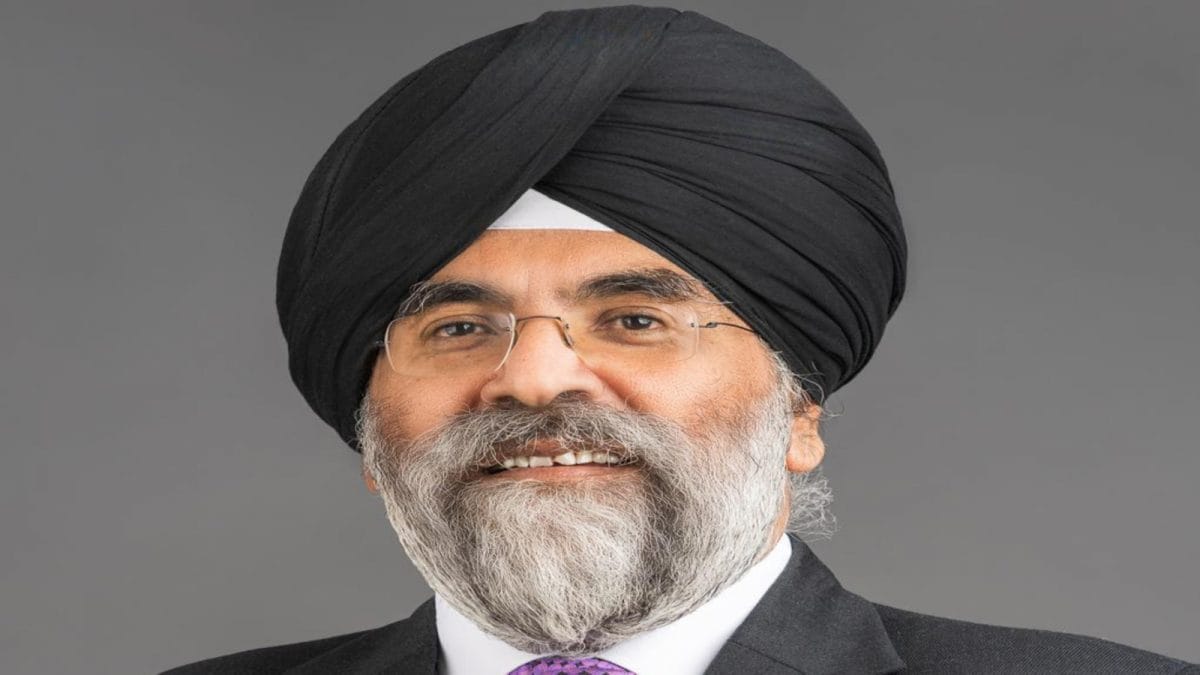House Republicans face tight deadline to slash foreign aid and public broadcasting
The House of Representatives is expected to vote today on Donald Trump’s $9bn funding cut to public media and to foreign aid, after the Senate delivered a victory for the president when it approved the package last night.
House Republicans were poised to vote in favor of the funding cut package, altered by the Senate this week to exclude cuts of about $400m in funds for a HIV/Aids prevention program. The vote, scheduled for this evening, could be close. In June, four Republicans joined Democrats to vote against the package, which passed 214-212.
House Republicans are feeling extra pressure now, as Trump’s administration would be forced to spend the money if Congress does not approve the cuts by the end of the week.
The $9bn at stake amounts to roughly one-tenth of one percent of the $6.8tn federal budget. On the package’s approval last night, Senate majority leader John Thune called it a “small, but important step toward fiscal sanity”.
In the 51-48 Senate vote, only two Republicans, Susan Collins from Maine and Lisa Murkowski from Alaska, voted against the funding cut. Both questioned why the legislative body – constitutionally responsible for the power of the purse – was taking direction from the executive branch to slash funding through the so-called “rescissions” package that was passed by the Republican-controlled Congress in March.
Key events Show key events only Please turn on JavaScript to use this feature
Confirming reports earlier in the week, Leavitt says Donald Trump will travel to Scotland from 25-29 July to visit Turnberry and Aberdeen (he has golf courses there), and on this trip he’ll meet Keir Starmer to “refine” the trading framework agreed with the UK.
White House press briefing
White House press secretary Karoline Leavitt is currently briefing reporters. I’ll bring you any key lines here.
Emil Bove judge confirmation moves step closer despite Democratic walkout

Chris Stein
Republican senators have advanced through the judiciary committee Emil Bove’s nomination to serve as a judge on a federal appeals court, after Democrats walked out of the session in protest of the GOP’s refusal to call a whistleblower who alleged the nominee advocated for ignoring court orders.
Donald Trump nominated Bove, his defense attorney who he appointed as a top justice department official in the early weeks of his new administration, for a seat on the third circuit court of appeals overseeing New Jersey, Pennsylvania, Delaware and the US Virgin Islands. Bove’s advancement through the judiciary committee clears the way for his confirmation to be voted on by the full Senate.
His nomination for the lifetime position has faced strident opposition from Democrats, after Erez Reuveni, a former justice department official who was fired from his post, alleged that during his time at the DoJ, Bove told lawyers that they “would need to consider telling the courts ‘fuck you’ and ignore any such court order” blocking efforts to remove immigrants to El Salvador. In testimony before the committee last month, Bove denied the accusation, and Reuveni later provided text messages supporting his claim.

At today’s hearing, the New Jersey senator Cory Booker attempted to formally delay the vote on confirming Bove, citing Reuveni’s whistleblower complaint as well as letters from state and federal prosecutors opposing his nomination. “There is no need to vote on this nominee today. It is a false urgency,” Booker said.
His request was rejected by the committee’s Republican chair, Chuck Grassley, and Democratic senators then walked out as the committee voted on Bove’s nomination.
Booker, who remained in the committee’s chambers and continued speaking as Republican senators called out their votes on Bove and other judicial nominees, continued:
What are you afraid of about even debating this, putting things on the record, hearing from every senator? Dear God, that’s what our obligations are.
This is outrageous that you’re not allowing senators to have their fair say before a controversial nominee is being done. This is unbelievable. This is unjust. This is wrong. It is the further deterioration of this committee’s integrity with a person like this. What are you afraid of?
Trump administration hands over Medicaid recipients' personal data to Ice - AP
Immigration and Customs Enforcement (Ice) officials will be given access to the personal data of the nation’s 79 million Medicaid enrollees, including home addresses and ethnicities, to track down immigrants who may not be living legally in the US, according to an agreement obtained by The Associated Press.
The information will give Ice officials the ability to find “the location of aliens” across the country, says the agreement signed on Monday between the Centers for Medicare and Medicaid Services and the Department of Homeland Security. The agreement has not been announced publicly.
The extraordinary disclosure of millions of such personal health data to deportation officials is the latest escalation in the Trump administration’s immigration crackdown, which has repeatedly tested legal boundaries in its effort to arrest 3,000 people daily.
Lawmakers and some CMS officials have challenged the legality of deportation officials’ access to some states’ Medicaid enrollee data. It’s a move, first reported by the AP last month, that health and human services officials said was aimed at rooting out people enrolled in the program improperly.
But the latest data-sharing agreement makes clear what Ice officials intend to do with the health data. “Ice will use the CMS data to allow Ice to receive identity and location information on aliens identified by Ice,” the agreement says.
Such disclosures, even if not acted upon, could cause widespread alarm among people seeking emergency medical help for themselves or their children. Other efforts to crack down on illegal immigration have made schools, churches, courthouses and other everyday places feel perilous to immigrants and even US citizens who fear getting caught up in a raid.
Department of Health and Human Services spokesperson Andrew Nixon would not respond to the latest agreement. It is unclear, though, whether homeland security has yet accessed the information. The department’s assistant secretary, Tricia McLaughlin, said in an emailed statement to the AP that the two agencies “are exploring an initiative to ensure that illegal aliens are not receiving Medicaid benefits that are meant for law-abiding Americans”.
Pam Bondi and Doug Burgum to visit Alcatraz today
Two months after Donald Trump floated the farfetched idea of reopening Alcatraz as a federal prison, his attorney general Pam Bondi and interior secretary Doug Burgum are expected to visit the tourist site today, KQED reports.
Burgum, whose department controls the land, and Bondi, who oversees the Bureau of Prisons, plan to visit the shuttered prison before it opens for the day for tours, Nancy Pelosi’s office confirmed to KQED.
“The planned announcement to reopen Alcatraz as a federal penitentiary is the Trump administration’s stupidest initiative yet,” the California Democratic congresswomen and former House speaker said in a statement.
“Make no mistake: this stupidity is a diversionary tactic to draw attention away from this administration’s cruelest actions yet in their Big, Ugly Law,” she said, referring to Trump’s sweeping tax and spending bill.
The Trump administration cannot simply reopen Alcatraz. Current legislation places the island under the control of the Department of the Interior and designates it as part of a national park. Therefore, a member of Congress would need to propose a bill to change things.
“Should reason not prevail and Republicans bring this absurdity before the Congress, Democrats will use every parliamentary and budgetary tactic available to stop the lunacy,” Pelosi said.

Johnson says chance House vote on rescissions package could end up being tomorrow
Further to that, House speaker Mike Johnson has said that while the vote is still planned for tonight, it could end up taking place tomorrow.
“We’re just looking at all the moving parts and the calendar and the timetable and all that,” Johnson said. The House is trying to fit all of the legislation planned for the entire week into one day after a group of Republicans blocked any action on crypto bills for two days.
“We know we’ve got a short fuse on rescissions for tomorrow, so we’re figuring it out,” he said. Per my last post, Congress faces a deadline tomorrow to approve the rescissions package if the Trump administration is to avoid having to spend the money.
“It may be tomorrow, but we’re doing it,” Johnson said when asked if the House could get it done tonight as planned. “We’re moving as fast as we can.”
House Republicans face tight deadline to slash foreign aid and public broadcasting
The House of Representatives is expected to vote today on Donald Trump’s $9bn funding cut to public media and to foreign aid, after the Senate delivered a victory for the president when it approved the package last night.
House Republicans were poised to vote in favor of the funding cut package, altered by the Senate this week to exclude cuts of about $400m in funds for a HIV/Aids prevention program. The vote, scheduled for this evening, could be close. In June, four Republicans joined Democrats to vote against the package, which passed 214-212.
House Republicans are feeling extra pressure now, as Trump’s administration would be forced to spend the money if Congress does not approve the cuts by the end of the week.
The $9bn at stake amounts to roughly one-tenth of one percent of the $6.8tn federal budget. On the package’s approval last night, Senate majority leader John Thune called it a “small, but important step toward fiscal sanity”.
In the 51-48 Senate vote, only two Republicans, Susan Collins from Maine and Lisa Murkowski from Alaska, voted against the funding cut. Both questioned why the legislative body – constitutionally responsible for the power of the purse – was taking direction from the executive branch to slash funding through the so-called “rescissions” package that was passed by the Republican-controlled Congress in March.

Sam Levine
At the behest of Donald Trump, Texas Republicans are poised to redraw their state’s congressional map to try and gain as many as five congressional seats, a move that is likely to further weaken the influence of the state’s fast-growing non-white population and could wind up backfiring on the party.
The effort to redraw the map represents a blunt and undemocratic effort by Republican lawmakers to pick the voters who elect them, and comes at a time when many of the party’s positions are unpopular. The US president and national Republicans are making the push because the GOP holds a 220-212 advantage in the US House (there are three Democratic vacancies) and Trump’s party typically loses seats in the midterm elections, which will happen next year.
But it’s a risky bet. Twenty-five of Texas’s 38 congressional districts are currently represented by Republicans, a result that was carefully engineered when lawmakers redrew the state’s congressional map in 2021. During that process, mapmakers focused on shoring up Republican seats instead of trying to pick up Democratic ones.
In order to pick up new seats, Republicans will have to spread their voters from safe Republican ones into Democratic districts. It could allow them to pick up more seats, but also makes the Republican districts more competitive and potentially winnable by Democrats in a strong year.
For the full story, click here:
What is the 3.5% protest rule and what does it mean for the US?
The Guardian’s Rachel Leingang reports:
The number is frequently cited in leftwing circles, serving as a rallying cry for people who oppose Donald Trump: if 3.5% of a population protests against a regime, the regime will fail.
Left-leaning content creators, activists and media have boosted the 3.5% rule as the anti-Trump resistance has grown. A Pod Save America episode in June was headlined The 3.5% Protest Rule That Could Bring Down Trump. Social media posts from protest groups broke down the rule and its limitations.
In the lead-up to mass days of protest, organizers have referred to the target as a goal. After the No Kings protests in June, for instance, the progressive activist group Indivisible sent an email to its supporters noting how “3.5% is a historically important target – but not a magic number”. Another day of protests is set for Thursday, dubbed “Good Trouble”, a reference to the late congressman John Lewis on the fifth anniversary of his death.
The figure stems from research of prior mass movements, though it’s often oversimplified. Still, the gist is accurate: sustained mass participation in a resistance movement can topple authoritarianism.
For the full story, click here:
Coca-Cola defends corn syrup after Trump claims he struck cane sugar deal
Edward Helmore
The Coca-Cola company has defended its use of corn syrup after Donald Trump’s claim yesterday that he had apparently convinced the brand to switch to using cane sugar in its US drinks, as it does in Mexico and the UK.
“I have been speaking to Coca-Cola about using REAL Cane Sugar in Coke in the United States, and they have agreed to do so. I’d like to thank all of those in authority at Coca-Cola,” Trump said in a social media post late on Wednesday. “This will be a very good move by them — You’ll see. It’s just better!”
Initially, the drinks giant responded with a neutral statement of appreciation for “President Trump’s enthusiasm” for Coke, and a vague message about “new innovative offerings within our Coca-Cola product range” to come.
Today, however, it released an additional statement making positive claims for high-fructose corn syrup, a product that some blame for soaring US obesity rates and which has become a target of health secretary Robert F Kennedy Jr’s “Make America healthy again” movement.
“The name sounds complex, but high fructose corn syrup (HFCS) – which we use to sweeten some of our beverages – is actually just a sweetener made from corn,” Coca-Cola said in a statement. “It’s safe; it has about the same number of calories per serving as table sugar and is metabolized in a similar way by your body.”
It added that the American Medical Association “has confirmed that HFCS is no more likely to contribute to obesity than table sugar or other full-calorie sweeteners”, and said: “Please be assured that Coca-Cola brand soft drinks do not contain any harmful substances.”
In 2023, the AMA released a statement saying it recognized “that at the present time, insufficient evidence exists to specifically restrict use of high fructose corn syrup (HFCS) or other fructose-containing sweeteners in the food supply or to require the use of warning labels on products containing HFCS”.
A switch by Coca-Cola to using sugar cane could have trade implications for the $285bn US soft drinks market. Coca-Cola in Mexico is made with cane sugar and packaged in glass bottles. Some is imported into the US, where it sells unofficially as “Mexican Coke” at a premium over its domestic counterpart.
In the 1980s Coca-Cola’s US arm changed its formulation to use high-fructose corn syrup, supported by US farming subsidies, and not imported sugar cane subjected to import tariffs. But turning back the clock could prove costly if Trump’s high US tariffs on nations that produce sugar cane continue to apply.
Ice data shows less than 1% of deportees had murder convictions - CBS News
Despite the Trump administration’s claims to be focusing on the “worst of the worst” offenders in its highly aggressive and controversial deportation campaign, the latest Ice data suggests many undocumented immigrants without violent criminal records have been ensnared in the process, CBS News reports.
Of the estimated 100,000 people who were deported between 1 January and 24 June by Immigration and Customs Enforcement, 70,583 were convicted criminals, according to an Ice document obtained by CBS. But most of these documented transgressions were traffic or immigration offenses.
In fact the data shows that serious criminal convicts make up a small minority of the people taken into custody by Ice. Less than 1% had murder convictions and fewer than 2% had convictions for sex crimes or sexual assault. Around 15% were convicted of assault. Just under 30% had no criminal convictions at all.
“There’s a deep disconnect between the rhetoric and the reality,” Ahilan Arulanantham, co-faculty director of the UCLA Law School’s Center for Immigration Law and Policy, told the Associated Press this week. “This administration, and also in the prior Trump administration, they consistently claim to be going after the worst of the worst and just talk about immigration enforcement as though it is all about going after violent, dangerous people with extensive criminal histories.
“And yet overwhelmingly, it’s people they’re targeting for arrest who have no criminal history of any kind.”
The Senate judiciary committee is also poised to vote on the nomination of former Fox News host Jeanine Pirro as US attorney for the District of Columbia. She has been in the role on an interim basis since 8 May.
A CBS reporter on X has found that in a questionnaire submitted to the committee Pirro wrote: “I am also not aware that ‘rioters who were convicted of violent assaults on police officers’ were given ‘full and unconditional pardons’.”

Senate judiciary committee to vote on Emil Bove's nomination to 3rd circuit
The Senate judiciary committee is expected to vote this morning on whether to advance the nomination of Emil Bove, a top justice department official and Trump’s former personal defense attorney, for a lifetime judicial appointment on the Philadelphia-based third circuit court of appeals.
Bove has been accused of dropping federal corruption charges against embattled New York mayor Eric Adams in exchange for his cooperation on immigration enforcement, which Bove and Adams have denied.
A former justice department lawyer has also accused Bove of suggesting that subordinates defy court orders aimed at stopping deportations to El Salvador, which Bove also has denied. “DoJ would need to consider telling the courts ‘fuck you’ and ignore any such order,” the whistleblower claims Bove said.
And in his first few weeks as acting justice department deputy attorney general, Bove fired prosecutors who brought charges against January 6 rioters and requested a list of FBI agents who worked on the cases.
More than 900 former justice department lawyers sent a letter to the Senate judiciary committee urging them not to confirm his appointment, per the New York Times (paywall).

Trump’s $1tn for Pentagon to add huge planet-heating emissions, study shows

Nina Lakhani
Donald Trump’s huge spending boost for the Pentagon will produce an additional 26 megatons (Mt) of planet-heating gases – on a par with the annual carbon equivalent (CO2e) emissions generated by 68 gas power plants or the entire country of Croatia, new research reveals.
The Pentagon’s 2026 budget – and climate footprint – is set to surge to $1tn thanks to Trump’s sweeping tax and spending bill, a 17% rise on last year.
Military emissions are closely tied to military spending.
The budget bonanza will push the Pentagon’s total greenhouse emissions to a staggering 178 Mt of CO2e, resulting in an estimated $47bn in economic damages globally, according to new analysis by the Climate and Community Institute (CCI), a US-based research thinktank, shared exclusively with the Guardian.
The huge increase in military spending comes amid worsening climate breakdown, and as Americans – many of them Trump voters – are being hit by destructive extreme weather events such as wildfires, extreme heat and the recent floods in Texas, as well as sea-level rise and other slow-onset climate effects.
Trump’s 2026 budget legislation slashes federal funding for science, education, Medicaid, food stamps, emergency management, the Weather Service and humanitarian aid – in order to pay for the military expansion, tax cuts for the wealthy, and Trump’s violent immigration crackdown. Trump has also withdrawn the US from the Paris climate accords for the second time, and rolled back Biden-era investments in renewable energies such as solar and wind that are key to weaning the US off fossil fuels in order to curtail climate catastrophe.
The US is the largest historical contributor to the climate crisis, and currently the second worst emitter after China – a country with quadruple the population.
“Every extra dollar grows the Pentagon’s carbon bootprint – and shrinks the chances for a livable future. With this additional funding from the big beautiful bill, the US’s trillion-dollar war machine will be responsible for more emissions than 138 individual countries,” said Patrick Bigger, lead author and CCI research director.
“Supposedly this spending is for national security. But what security is there in more droughts, floods, hurricanes, and rising seas?”
What are rescissions – and why does Trump want Congress to approve them?

Chris Stein
Congressional Republicans are pushing for passage of a rescissions package, legislation requested by Donald Trump that will claw back $9bn in funding intended for foreign aid programs and public broadcasting.
The bill, which is part of the president’s campaign to slash government spending, passed the House last month, and has now passed the Senate in a narrow 51-48 vote. It is due to go back to the House before Friday’s deadline.
What is a rescissions package?
Congress controls the power of the purse by approving a budget and then appropriating money. But under the Impoundment Control Act of 1974, the president may request the rescission of previously authorized funds, and Congress has 45 days to approve it, otherwise the money must be spent.
Why are Republicans rushing to pass the rescissions package?
The 45 days on Trump’s package of rescissions requests expires on Friday, hence the reason why the GOP is moving to quickly pass the bill. It also explains why the House speaker, Mike Johnson, on Tuesday pleaded with the Senate to “pass it as is” – meaning the version of the bill that passed his chamber last month.
What funding does Trump want to cancel?
The White House has proposed cancelling a total of $9bn in authorized funding, including $1.1bn budgeted for the Corporation for Public Broadcasting, which funds NPR and PBS, and about $8bn meant for foreign assistance programs. On the chopping block is money meant for organizations affiliated with the United Nations and other international organizations, including the World Health Organization and the UN human rights council, as well as for refugee assistance and some USAID programs.
Read the full explainer piece here:
Only about one quarter of US adults say that president Donald Trump’s policies have helped them since he took office, according to a new poll.
In fact, the Republican president fails to earn majority approval on any of the issues included in the poll from the Associated Press-NORC Centre for Public Affairs Research.
He has even slipped slightly since earlier this year on immigration, which has consistently been a strength for him in his second term, AP reported.
And while a majority of Americans do see Trump as at least “somewhat” capable of getting things done following the passage of his sprawling budget bill, fewer believe he understands the problems facing people like them.
Roughly half of US adults report that Trump’s policies have “done more to hurt” them since his second term began six months ago, the survey found.
About two in 10 say his policies have “not made a difference” in their lives, with about one quarter saying his policies have “done more to help” them.
The vast majority of Democrats and about half of independents say Trump’s policies have had a negative impact, while even many Republicans say they have not seen positive effects.
The mixed reviews on Trump’s policies come as he struggles to follow through on key campaign promises, including lowering costs for working-class Americans, preserving popular social welfare programmes like Medicaid, ending foreign wars and lowering government spending.

 3 hours ago
3 hours ago

















